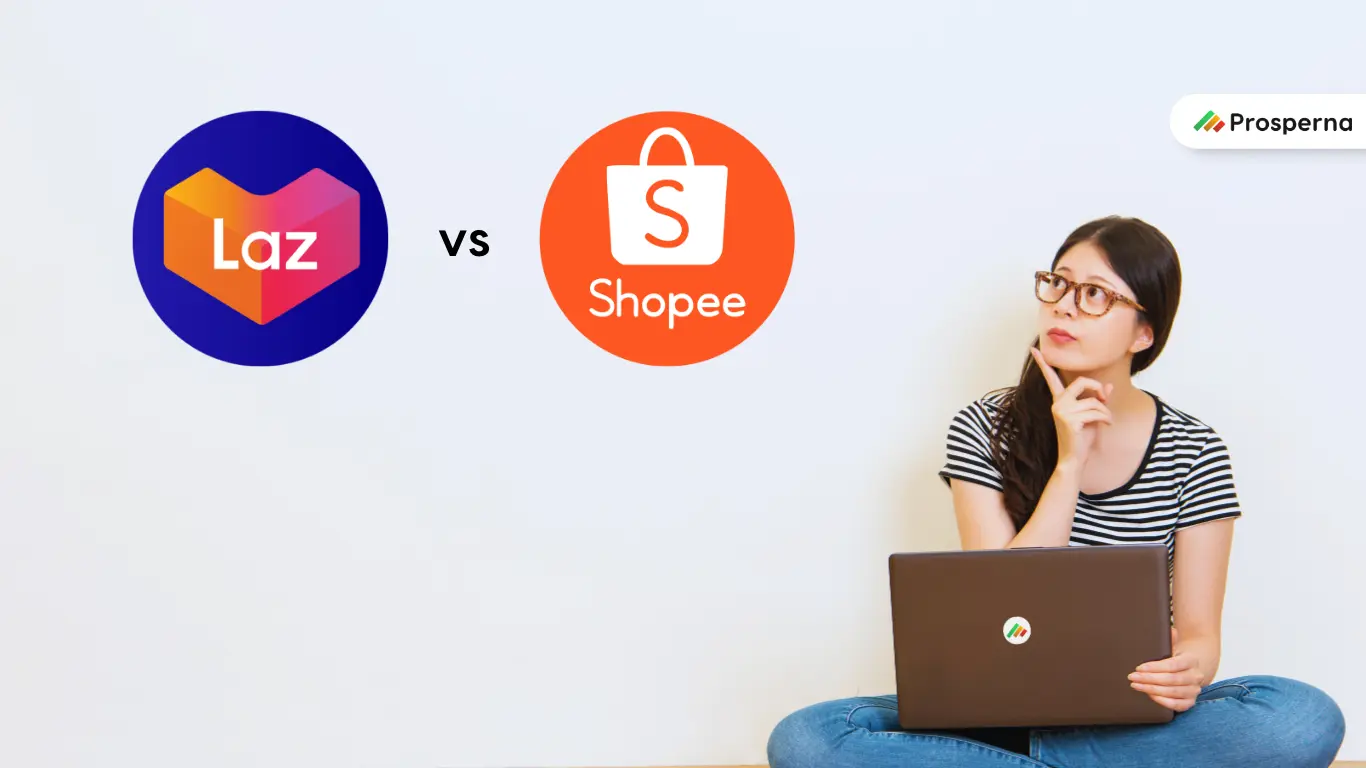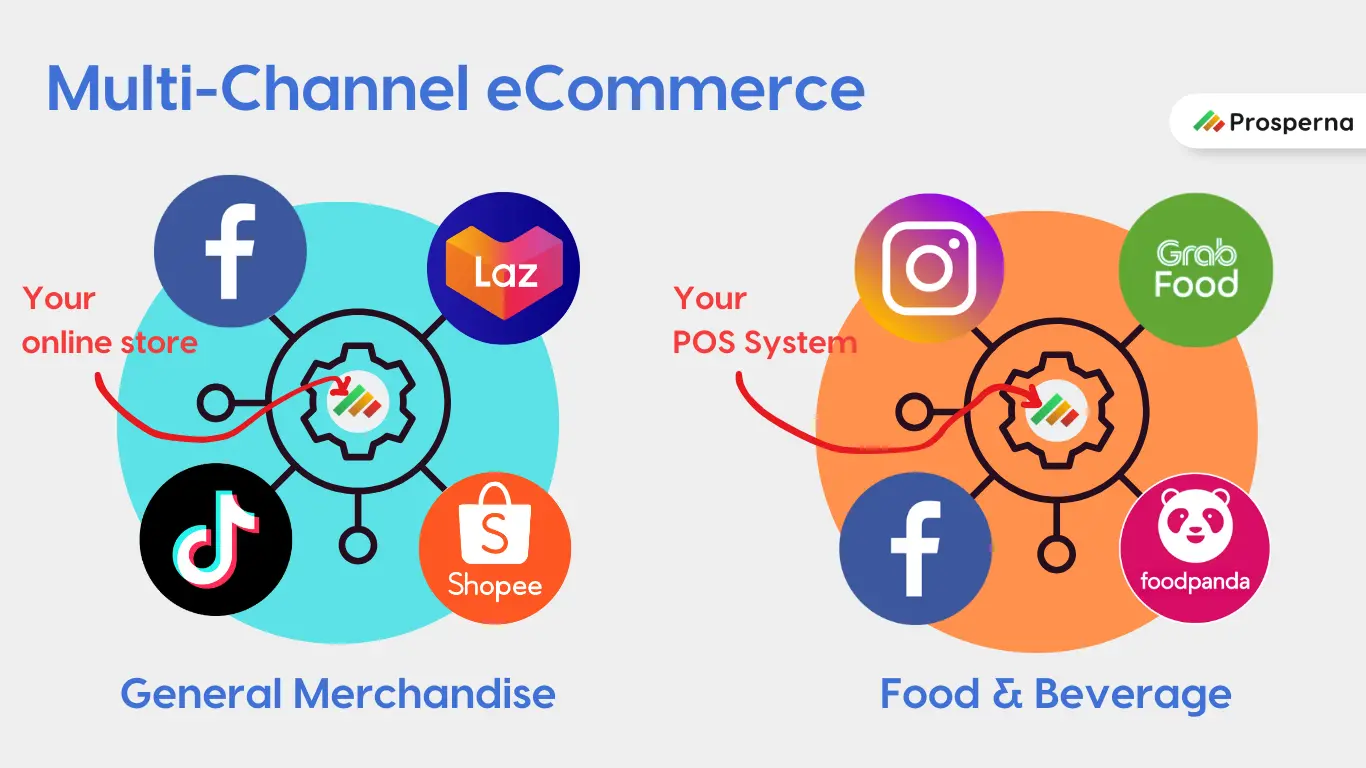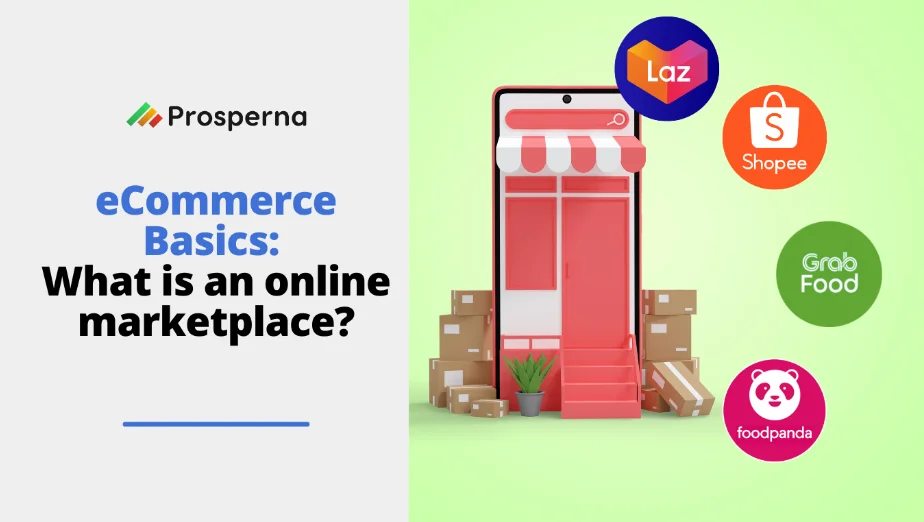An eCommerce marketplace can be defined as a dynamic and interactive platform where buyers and sellers come together to engage in the exchange of goods, services, or information. It serves as a virtual or physical space that facilitates transactions, fosters competition, and enables individuals or businesses to connect, negotiate, and complete transactions.
The primary purpose of a marketplace is to provide consumers with the widest variety of options, at the best prices and convenience.
Why are eCommerce marketplaces important to the marketing strategy of Philippine businesses?
In today’s digital era, eCommerce has emerged as a powerful force driving global trade and commerce.
And, Philippine eCommerce market growth is NO different!
The overall Philippine eCommerce market is experiencing rapid growth, with a projected 19.6% increase in 2024 and a CAGR of 13.2% from 2024-2028, driven by evolving consumer behavior, government support, and the entry of new players in the space.

Who are the TOP 2 eCommerce marketplaces in the Philippines?
If you look at Lazada Philippines statistics, they’ve achieved some pretty amazing results:
- As of 2023, Lazada has approximately 160 million active users across Southeast Asia.
- The Philippines accounts for 83.34% of Lazada’s total website traffic.
- Monthly visits to Lazada’s website in the Philippines reached approximately 29.92 million visits in July 2024, a 3.43% increase compared to the previous month.
As for Shopee Philippines statistics, they’ve also reached some pretty big milestones:
- As of 2023, Shopee has approximately 27 million users in the Philippines.
- In 2023, Shopee’s app was downloaded 144 million times globally.
- Monthly visits to Shopee’s website in the Philippines reached approximately 59.7 million in July 2024, a 3.21% increase compared to the previous month.
Other notable and interesting marketplaces like Zalora, TikTok and Temu have also led to positive Philippine eCommerce market growth.

In addition to online marketplaces who sell general merchandise like fashion & apparel or health & beauty products, there are also online marketplaces that specifically focus on food & beverage products.
So, when it comes to launching your online food business in the Philippines, it’s important to consider if an eCommerce marketplace is right for you.
Who are the TOP 2 eCommerce marketplaces for the food industry?
The GrabFood Philippines success story comes to mind and has been pretty remarkable:
- As of 2023, GrabFood transactions increased 1.7 times compared to 2019 levels.
- The average basket size for GrabFood users has also increased by 84% in 2023 compared to pre-pandemic levels.
- The adoption of integrated online-to-offline (O2O) solutions, such as self-pick-up and dine-in options, has seen a 3.6 times increase of total order volume from 2021 to 2023.
- 89% of Filipino Grab users utilize the app to discover new restaurants.
On the other hand, check out these FoodPanda performance metrics:
- FoodPanda’s website, foodpanda.ph, received 2 million visits in July 2024, although this represents a 5.3% decrease compared to the previous month.
- 91.87% of its total traffic is predominantly from the Philippines.
- They plan on doubling their small warehouses in Metro Manila in 2024 to offer quick commerce grocery solutions.
So, how can a Philippine business fully leverage the potential of eCommerce marketplaces?
Let’s explore!

8 Advantages of eCommerce Marketplaces in the Philippines
1. Wide Customer Reach
By selling on a marketplace, businesses gain access to a vast existing customer base that extends beyond their physical location. This wider reach increases the chances of attracting NEW potential buyers.
2. Established Brand Presence
Joining an established online marketplace allows businesses to leverage the platform’s existing brand presence and reputation. Customers trust these marketplaces, making it easier for businesses to gain credibility and establish brand recognition.
3. Cost-Effective Setup
Selling on a marketplace offers a cost-effective startup option. These platforms provide ready-made infrastructure, including payment gateways, logistics support, and customer service. Businesses can save significant upfront investments and operational costs by utilizing the existing framework of an established marketplace.
4. Increased Discoverability
Online marketplaces offer robust search capabilities and personalized recommendations, ensuring that products are easily discoverable by potential buyers. These platforms optimize product visibility through various techniques such as search engine optimization (SEO) and targeted advertising.
5. Streamlined Operations
Marketplaces simplify various operational aspects for businesses. They provide tools and features for product listing, inventory management, order processing, and fulfillment. This streamlines business operations and reduces administrative burdens, allowing sellers to focus more on product development, marketing, and customer engagement.
6. Access to Marketing Opportunities
Online marketplaces often invest in marketing initiatives to drive traffic and promote seller products. They run targeted campaigns, email newsletters, and social media promotions to increase product visibility. By selling on these platforms, businesses can leverage these marketing opportunities without the need for extensive individual marketing efforts.
7. Customer Trust and Security
Most of the time, marketplaces prioritize customer trust and security, implementing measures such as secure payment gateways, buyer protection programs, and customer reviews. These mechanisms instill confidence in buyers, leading to increased sales for businesses.
8. Data Analytics and Insights
Many online marketplaces offer data analytics tools that provide valuable insights into customer behavior, preferences, and sales trends. Businesses can utilize this information to optimize their product offerings, pricing strategies, and marketing campaigns.
As you can see, selling on eCommerce marketplaces in the Philippines definitely has its advantages.
Leveraging Your eCommerce Strategy with Both Your Own Online Store and 3rd Party Marketplaces
This is what we call Multi-Channel eCommerce.
A multi-channel approach to eCommerce is important because these days, customers are everywhere!
By having both your own online store and selling on marketplaces, you’ll benefit from:
- Diversification of sales channels
- Reaching different customer segments
- Maximizing sales opportunities
In addition, if you choose the right online store platform, you’ll be able to:
- Synchronize inventory and order management systems
- Optimize product listings for each platform
- Leverage cross-promotion and advertising opportunities
If you are selling general merchandise, choosing the right online store platform will enable you to create a direct integration with Lazada and a direct integration with Shopee as well.
Overall, selling on a marketplace offers businesses a unique opportunity to reach a wide customer base and tap into the benefits of an established e-commerce platform.
Final Thoughts
Yes, eCommerce marketplaces have become an integral part of the eCommerce landscape and Philippine eCommerce market growth, providing businesses with opportunities to expand their reach and increase sales.
Philippine businesses must carefully evaluate the pros and cons of selling on a marketplace to determine the best approach for their specific goals and resources.
For most cases, we suggest a combination of having your own online store and selling on marketplaces together, as the most effective approach.
Online Marketplace FAQs
Selecting the right marketplace requires careful consideration. Factors to evaluate include the marketplace’s target audience, product category fit, fees and commission structures, seller support and resources, reputation and trustworthiness, traffic volume and conversion rates, and any specific marketplace requirements or restrictions. Conducting thorough research and analyzing these factors will help businesses identify the most suitable marketplace(s) for their products or services.
Understanding the costs associated with selling on a marketplace is crucial for business planning. Marketplaces typically charge various fees, such as listing fees, commission fees on sales, subscription fees for premium features or memberships, payment processing fees, and fulfillment or shipping fees. It’s essential to carefully review each marketplace’s fee structure to assess its impact on profitability and determine which marketplace offers the most favorable cost-to-benefit ratio.
With numerous sellers competing for attention on marketplaces, optimizing product listings is vital. Key strategies include using high-quality product images and descriptions, incorporating relevant keywords for search visibility, highlighting unique selling points and benefits, setting competitive pricing, actively managing customer reviews and ratings, offering exceptional customer service, and leveraging promotional tools provided by the marketplace to increase visibility and conversion rates.
It’s very important that brands understand how to manage customer inquiries, complaints, and return policies to ensure customer satisfaction.
Each marketplace handles customer service and returns through a structured process but differently in order to enhance user experience and maintain satisfaction.
In general, brands must figure out how to engage directly with customers to address customer concerns efficiently. To do this, we suggest that brands use a marketplace’s seller center help resources and the different customer feedback mechanisms that marketplaces offer.
Understanding what products are not allowed on specific marketplaces is essential for compliance and avoiding penalties.
Every marketplace has their own specific policies regarding prohibited items that sellers must adhere to in order to maintain compliance and ensure a safe shopping environment.
For sellers who list prohibited items on a marketplace, they may face penalties, including the removal of their product listings and the issuance of non-compliance points and/or account deactivation.
To prevent this, we suggest that brands use a marketplace’s seller center help resources to understand what products are admissible or prohibited.
Prosperna, Your Partner to eCommerce Success
Prosperna is an all-in-one eCommerce platform for Philippine businesses and digital creators. We are on a mission to empower 1 million Philippine businesses with simple and affordable eCommerce software.
In fact, we are so passionate about helping Philippine businesses and digital creators that we’re giving you a free account forever!
Want to start selling online? Create your FREE-forever Prosperna account now.




